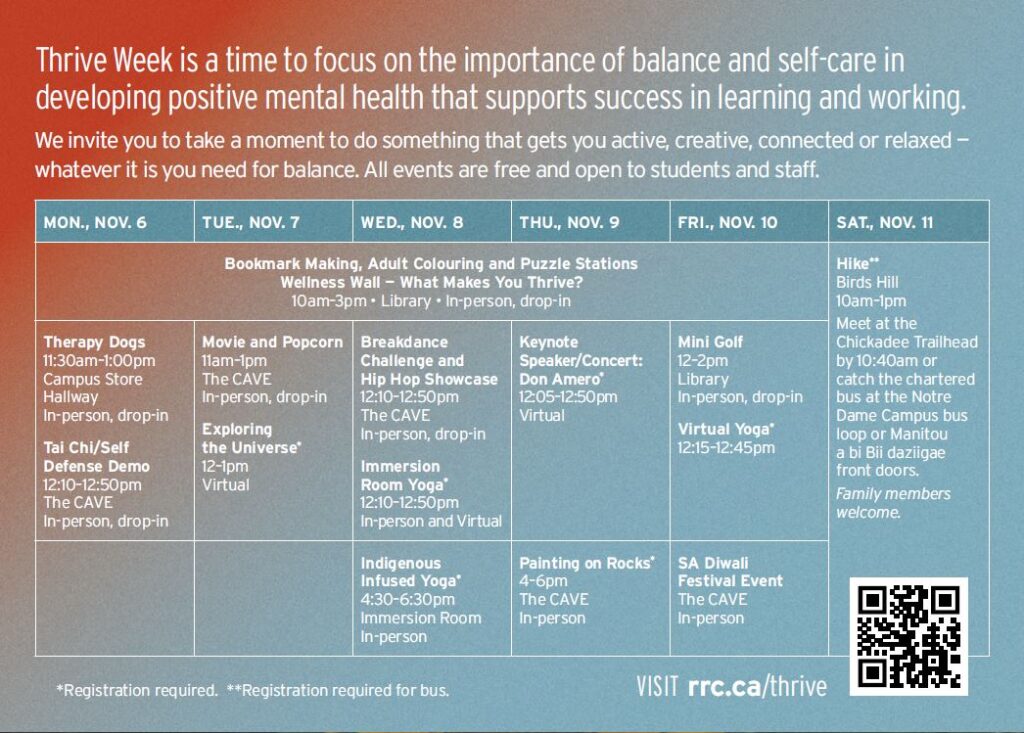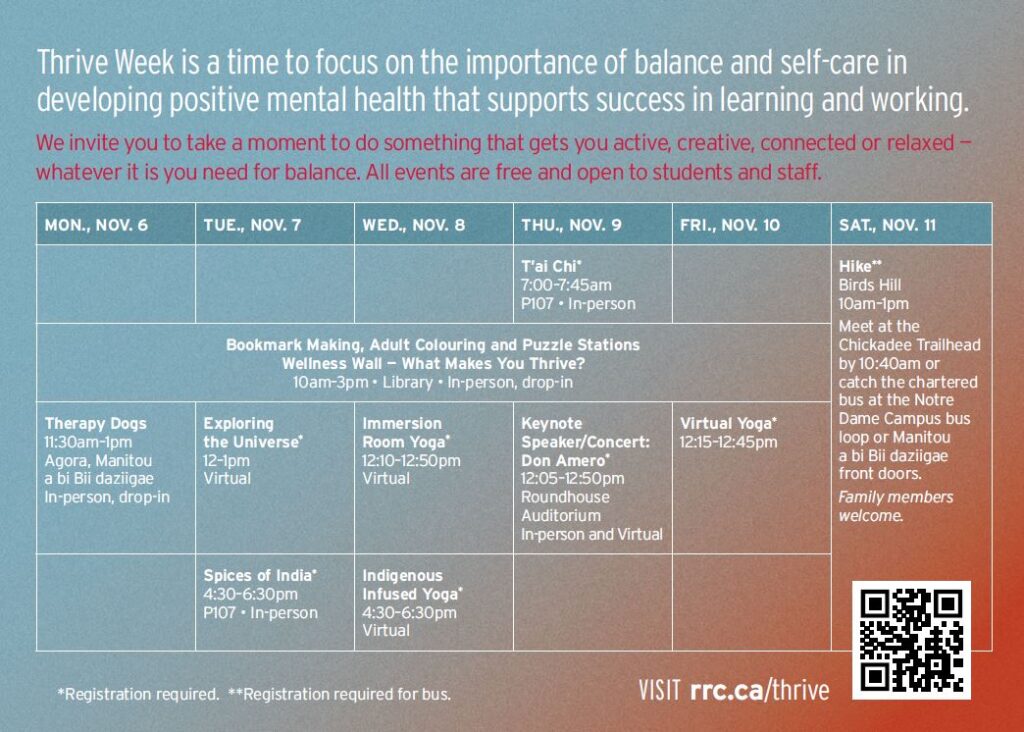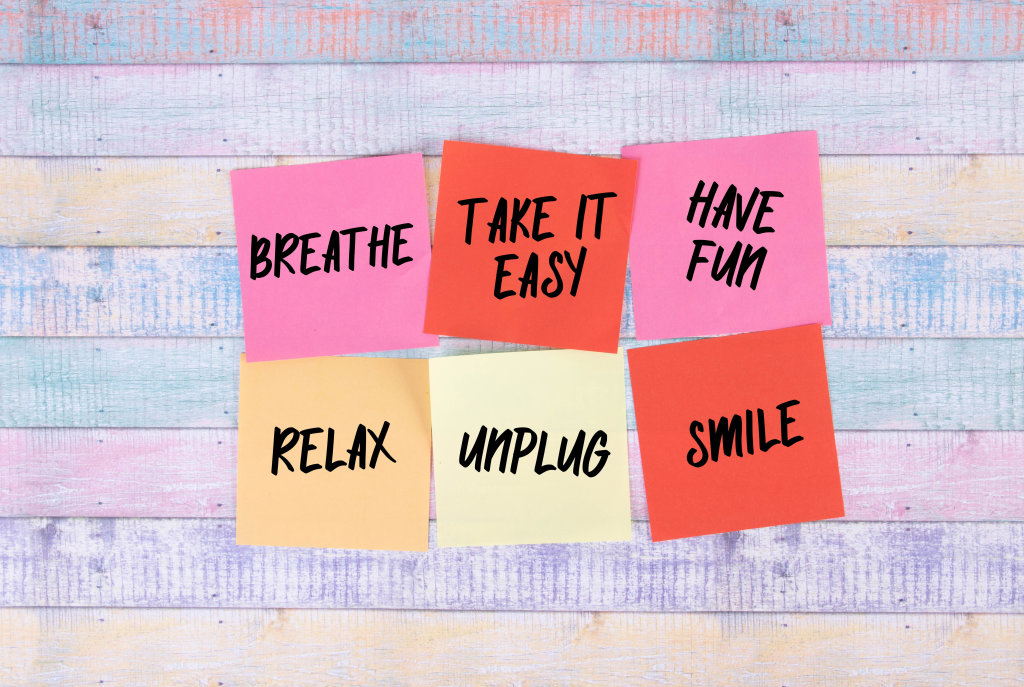How Relaxation Benefits Your Mental Health

College Chaos
As a post-secondary student, you may be feeling stressed during this time of the year. Balancing classes, assignments, exams, work and a social life can be overwhelming, but it’s essential to remember that stress is a natural part of the college experience. To help you stay mentally and emotionally healthy, it’s important to incorporate relaxation into your routine. Campus Well-Being invites you to attend Thrive week activities to practice relaxation!
The Importance of Relaxation
Relaxation is not just a luxury, it’s a necessity. When you’re under constant pressure, your body and mind can become exhausted which can lead to burnout, anxiety and other mental health concerns. Incorporating relaxation techniques into your daily life can have a profound impact on your overall well-being, academic performance, and personal life. Consider the following reasons of the importance of relaxation.
- Reduces stress: relaxation can help lower stress levels, allowing you to think more clearly, stay focused, and tackle challenges with a calm mind.
- Improves sleep: stress can disrupt sleep patterns which can lead to fatigue and decreased concentration. Relaxation techniques can promote better sleep to ensure you succeed in your academic responsibilities.
- Enhances concentration: when you’re relaxed, your ability to concentrate and retain information improves. This can lead to more efficient studying and better academic performance.
- Boosts resilience: regular relaxation helps build your resilience, making it easier to handle adversity and bounce back from setbacks.
- Promotes emotional well-being: relaxation can improve your mood, reduce symptoms of anxiety and depression, and contribute to a more positive outlook on life.
Relaxation Opportunities During Thrive Week
Campus Well-Bing and the Students’ Association are hosting Thrive Week to promote mental health and wellness. Check out our NDC and EDC Thrive Week schedules to participate in an activity that helps you to relax! Some options include working on a puzzle, making a bookmark or doing some coloring in the library. You’re also welcome to join a yoga class to find some calm. Whatever you choose, be kind to yourself and take some time to pause.
Remember, taking time for relaxation is not a sign of weakness but a sign of self-care, self-preservation, and strength. By practicing relaxation techniques, you will be better equipped to handle the demands of your academic and personal life while enjoying a healthier, happier college experience. So come on out and join us between November 6 and 11.
NDC Schedule

EDC Schedule

Relaxation Techniques to Practice
- Mindfulness meditation: practicing mindfulness meditation can help you stay present and reduce anxiety. Take a few minutes each day to practice mindfulness. Remember, you have free access to Mindwell that you can use anytime and any day!
- Deep breathing: when you feel overwhelmed, deep breathing can help calm your mind and body.
- Progressive muscle relaxation: tensing and relaxing different muscle groups in your body can release physical tension to help you feel more relaxed.
- Yoga and stretching: practicing yoga and stretching can improve flexibility and release physical and mental tension.
- Engage in a hobby: doing something you enjoy is a great way to unwind and de-stress. Some ideas would include baking, art, crocheting, sports, music, etc.
- Nature walks: spending time in the fresh air around nature can help your overall well-being and bring you back to the present moment.
Take it Easy!

